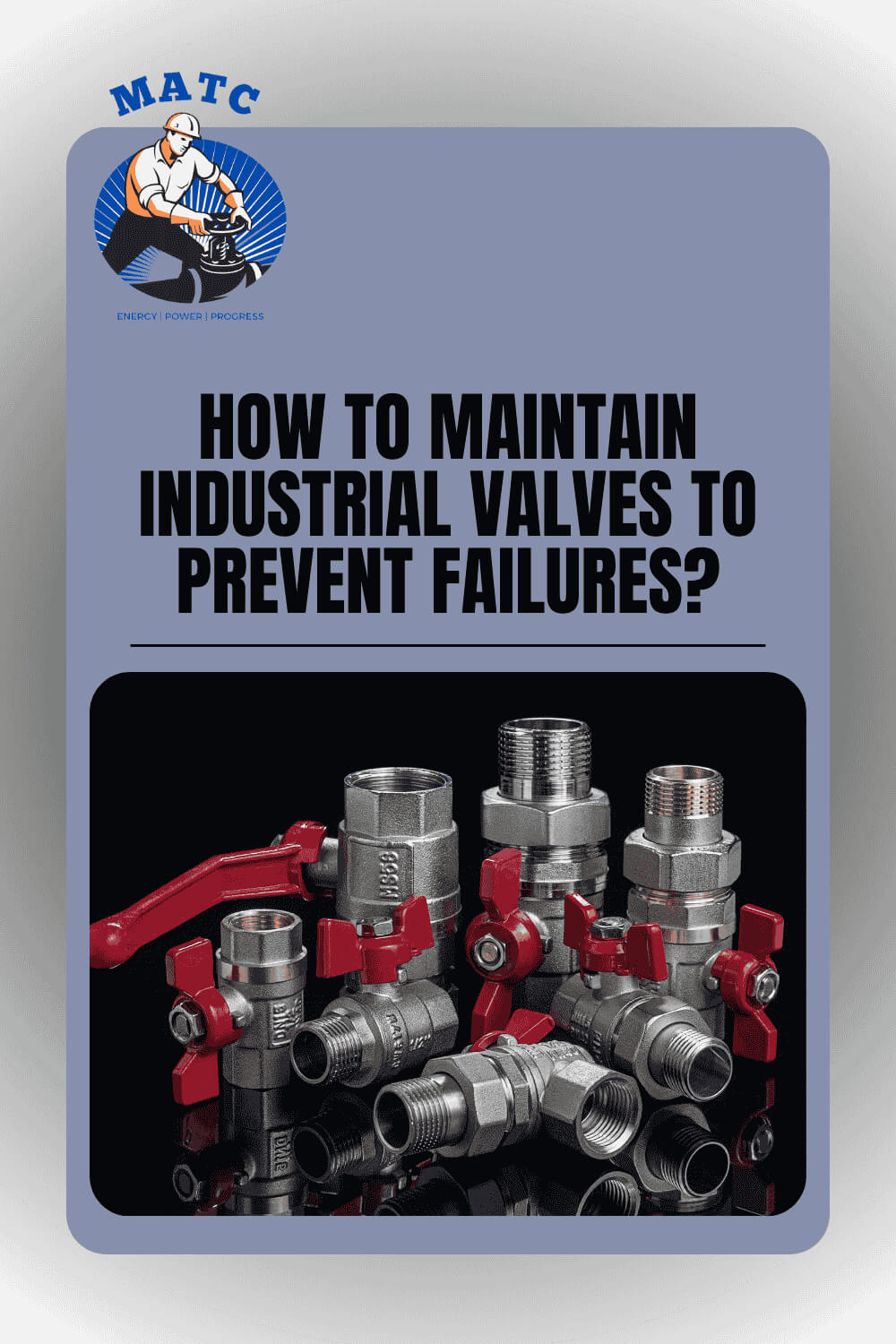
Industrial valves are the lifeline of all process and manufacturing facilities, ranging from water treatment to oil and gas and power generation. They control flow, pressure, and safety in mission-critical systems. But abrasive Middle East environments, corrosive-media exposure, and continuous high-pressure usage leave valves vulnerable to failure.
Unintended valve failure not only causes production downtime but also causes expensive downtime, safety risks, and regulatory risks. For industries where the efficiency and reliability objectives remain of topmost importance, industrial valve maintenance must be a top-operational priority.
Efficient maintenance strategies, common causes of valve failure, and best practices to generate optimal valve performance in industries are discussed in this handbook.
Why Valve Maintenance is Crucial?
The industrial setting is subjected to unique conditions: extreme heat, coastal humidity, sand exposure, and corrosive seawater. These conditions speed up corrosion in DRP valves, seal wear, and mechanical deterioration. Valve failure has far-reaching implications in oil and gas refineries, desalination plants, and construction plants.
The major reasons why valve maintenance should be accorded top priority in industries are:
- Prevention of costly downtime for oil and gas refineries.
- Safe, compliant operation in chemical process plants.
- Aiding longevity of costly valves.
- Preserving desalination plants and water distribution efficiency.
Common Causes of Industrial Valve Failures
As a point of departure for prevention practices, it’s essential to record the most common valve failure causes:
- Corrosion and Erosion: Exposure to high salinity and chemicals leads to internal valve component degradation.
- Seal and Gasket Failures: Over-worn-out or degenerated seals cause pressure loss and leakage.
- Contamination and Clogging: Sand, dust, and debris interfere with smooth valve action.
- Lack of Lubrication: Premature wear on moving parts results from increased friction.
- Improper Installation or Handling: Mistakes in handling during storage and transportation result in misalignment.
- Irregular Operation: Valves that are not used regularly freeze or jam.
Best Practices to Maintain Industrial Valves
1. Have a Preventive Maintenance Program
Schedule periodic valve checks according to operating conditions and valve construction. Preventive maintenance minimizes unexpected shutdowns and maximizes system reliability.
2. Exercise Valves Periodically
Where valves have been idle for extended periods, periodic use during maintenance avoids seizing and easy operation.
3. Conduct Performance Monitoring
Regular checks of torque resistance, pressure fluctuation, and leak detection for valve degeneration symptoms early on are essential, especially for stainless steel valves. Predictive monitoring devices are gaining prominence in oil and gas installations.
4. Conduct Periodic Visual Inspections
Simple leak, rust, or worn part inspection identifies problems before they become consequential. Inspect flanges, packing, and seals for signs of wear.
5. Verify Seal Integrity
Pressure test and replace seals or gaskets as early as possible, where pipelines carry corrosive material, seal integrity is safety and compliance paramount.
6. Clean Valves Regularly
Avoid sand, dust, and mineral deposits by regular valve cleaning. This is especially important in Emirates desert environments.
7. Proper Lubrication
Utilize industrial lubricants suitable for valve type and service conditions. Regular lubrication reduces friction and valve life.
8. Utilize Certified Spare Parts
Replace worn or defective components only with approved manufacturer spares. Substitution by low-quality spurious items lowers reliability and raises safety concerns.
9. Train Operators and Technicians
Regular training ensures operators are capable of operating valves efficiently, identify early malfunctioning, and operate tools in a safe manner. A few plants spend on operator training to promote reliability.
10. Store and Handle Properly
Valves should be stored in ventilated, dry places. Shield them from dust, moisture, and mechanical shocks during transit.
Industrial Valve Maintenance
Industrial valve maintenance demands localized strategies because of environmental and regulatory factors:
- Offshore operations: Offshore oil platforms and desalination plants are extremely susceptible to corrosion. Utilize corrosion-resistant materials like duplex stainless steel.
- High-Temperature Applications: Thermal power plants and petrochemical facilities need to employ lubricants and seals with a good heat rating. Cast valves are highly effective in such environments due to their superior strength, durability, and resistance to thermal stress.
- Compliance Laws: Companies have to adhere to Emirates-specific environmental and safety laws pertinent to valve performance and protection against leaks.
- Supply Chain Readiness: UAE businesses need to engage with local valve suppliers to enable timely availability of industrial valves, actuators, and spares to ensure zero downtime.
FAQs
What is the maintenance of industrial valves?
Regular valve maintenance inspection, cleaning, and lubrication—prevents failures and ensures safety, efficiency, and longer lifespan in UAE conditions.
How to prevent valve failure?
Valve failure can be prevented with regular inspections, lubrication, and timely seal replacement. Using high-quality industrial valves in UAE and scheduled maintenance ensures durability and system efficiency.
How to do valve maintenance?
Valve maintenance and certified valves ensure optimal performance and long lifespan, preventing costly breakdowns in UAE industries.
What maintenance task should be carried on valves?
Key valve maintenance includes cleaning, lubrication, tightening, and replacing worn parts. Regular inspection, pressure testing, and corrosion checks ensure efficient operation and prevent failures.
Final Thoughts
Industrial valves can be small in size, but their failure can cause colossal disruptions to vital industries. For UAE businesses, the use of proactive valve maintenance practices promotes safety, reliability, and operating efficiency.
Through the integration of preventive inspections, lubrication, seal management, and training programs, businesses can maximize valve lifespan and prevent expense-generating failures. As the UAE continues its industrial development, companies emphasizing valve maintenance will not only save time but also maximize long-term profitability.
Reliable suppliers Mustafa Ashkar Trading LLC ensure that businesses in Dubai can maintain smooth and uninterrupted operations with minimal downtime.